Is wasp spray safe for us? Many people worry about using common things at home because they might be harmful. One of these things is wasp spray. We need to know: how long is wasp spray toxic to humans?
Wasp spray can be toxic to people for hours or even days if it touches you. After using it, make sure the area has fresh air. If it gets to you, go to the doctor right away.
Do you want to know more about wasp spray and how it affects us? Read our full article. It’s good to know about these things to keep safe. Read on to learn more!
Wasp Sprays
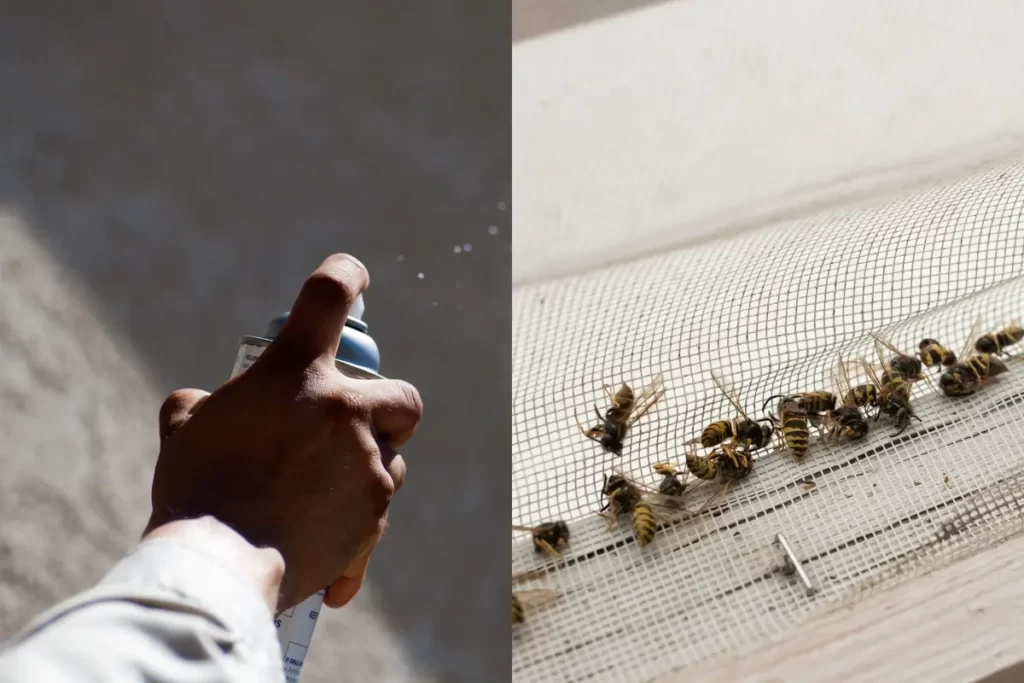
Summer brings fun, sun, and bugs. While we all love seeing butterflies, wasps can make us nervous. Some people like wasps because they help gardens by eating pests. But many are scared of their painful sting. That’s why we have wasp sprays. Think of these sprays as a safe wall between us and wasps. They help keep us safe from wasps flying around.
These sprays are a mix of old and new ideas. Some of the ingredients come from flowers like chrysanthemums. Others are made by scientists. These sprays aren’t meant to hurt the wasps, but to let us live peacefully with them. They help us enjoy summer without worrying about wasp stings.
Common Ingredients in Wasp Sprays
| Ingredient | Description | Function | Considerations |
| Pyrethrin | Derived from chrysanthemum flowers, these are natural insecticides used for a variety of pests. | Targets the nervous system of wasps and other pests, causing paralysis and death. | While naturally-derived, they can be toxic to fish and other aquatic creatures. |
| Permethrin | A synthetic version of pyrethrin. It’s used in many insect control products. | Works by paralyzing and killing wasps and hornets. | Avoid contact with skin. Can be toxic to cats. |
| Piperonyl Butoxide | Often combined with pyrethrins. It’s not effective as an insecticide on its own. | Enhances the effectiveness of pyrethrins. | Considered safe when used as directed but can be harmful if ingested in large amounts. |
| Cyfluthrin | A synthetic pyrethroid, it affects the nervous system of insects. | Acts quickly to knock down and kill wasps. | May cause skin or eye irritation. Keep away from children and pets. |
| Diatomaceous Earth | A natural substance made up of fossilized aquatic organisms’ remains. | Causes dehydration in wasps, leading to death. | Non-toxic to humans but can be an irritant if inhaled. Avoid breathing in the dust. |
| Deltamethrin | Another synthetic pyrethroid. It’s known for its effectiveness against a variety of pests. | Interferes with the nervous system of wasps. | Harmful if swallowed. Keep out of reach of children. |
| Prallethrin | A synthetic pyrethroid, commonly used against flying insects. | Quickly knocks down wasps, rendering them immobile. | Can cause skin irritation. Rinse thoroughly if contact occurs. |
| Silica Gel | A desiccant that is in the form of a gel. | Dehydrates wasps by absorbing the waxy coating on their exoskeletons. | Generally considered non-toxic but best to avoid ingestion. |
| Tetramethrin | Part of the pyrethroid family, it’s used mainly against flying insects. | Rapidly paralyzes wasps, leading to a quick knockdown. | Keep away from food and water sources. |
| Lemon Eucalyptus Oil | A natural ingredient derived from the lemon eucalyptus tree. | Repels wasps and other insects. | Safe for most users but can cause skin reactions in some. |
The Toxicity of Wasp Sprays
People have made wasp sprays to help them live safely with nature, especially with wasps. These sprays keep wasps away, but there’s a concern. Are they safe for us? While they protect us from wasps, we need to know if they might harm us in other ways.
Immediate Effects on Humans
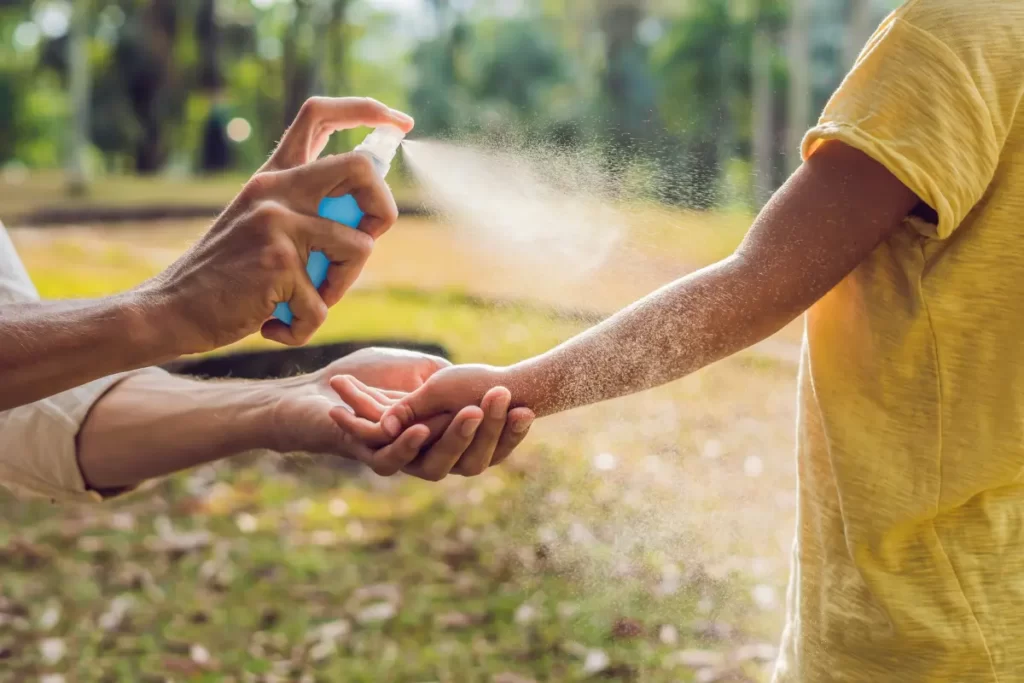
Using wasp spray can quickly help keep wasps away. But, if we’re not careful, these sprays can affect us too. When we spray them, we might accidentally breathe some in. This can make our eyes feel like they’re burning.
We might find it hard to breathe or even feel dizzy. The spray can also irritate our skin, making it red or numb. These reactions are our body’s way of telling us it doesn’t like the spray. So, it’s important to be careful when using it.
Long-term Effects on Humans

Using wasp spray can have immediate effects that we can easily see and feel. But there are also longer-lasting effects that take time to show up. Over time, the chemicals in the spray can build up in our bodies.
This can cause problems like hormone imbalances or even increase cancer risk. The chemicals might also affect our brain’s normal function and our ability to have children.
So, when using wasp spray, we need to think about its immediate help against wasps and its possible long-term effects on our health. It’s all about balancing between staying safe from wasps and protecting our health.
Vulnerable Groups

- Babies and Young Kids: Babies and little children are still growing and learning about the world. They often touch things and put their hands in their mouths. Because their bodies are still developing, they might react differently to wasp spray chemicals.
- Pregnant Women: When someone is pregnant, they also care for the baby growing inside them. Wasp sprays could affect the baby’s growth, so it’s essential to be careful.
- Older People: As people get older, their bodies change. They might not be able to get rid of harmful things from sprays as quickly. They might be more affected by the chemicals in wasp sprays.
- People with Health Issues: Some people already have health problems. For them, using wasp spray can make things more complicated, especially if they have breathing problems or weak immune systems.
- People with Allergies: Some people are very sensitive to certain things. They might have strong reactions to even a small amount of wasp spray.
So, while wasp sprays can be helpful, we need to think about everyone’s health. Some people might be more at risk, and we should always be careful when using these products.
Is Wasp Spray Toxic After It Dries?
Even after the spray dries, some chemicals can remain on surfaces. Think of it like a story that keeps getting passed on. So, even if a surface feels dry, tiny amounts of spray could still be left.
If someone or a pet, touches that surface, they might pick up some of these leftover chemicals. Not all ingredients in the spray are the same. Some become harmless once they dry.
Others might stay harmful for a bit longer. But over time, the strength of these left-behind chemicals weakens. As days go by, nature helps break them down and get rid of them, making things safer. While wasp sprays work well, it’s good to remember that some effects can stay around for a little while, even after the spray dries.
Safety Precautions When Using Wasp Sprays
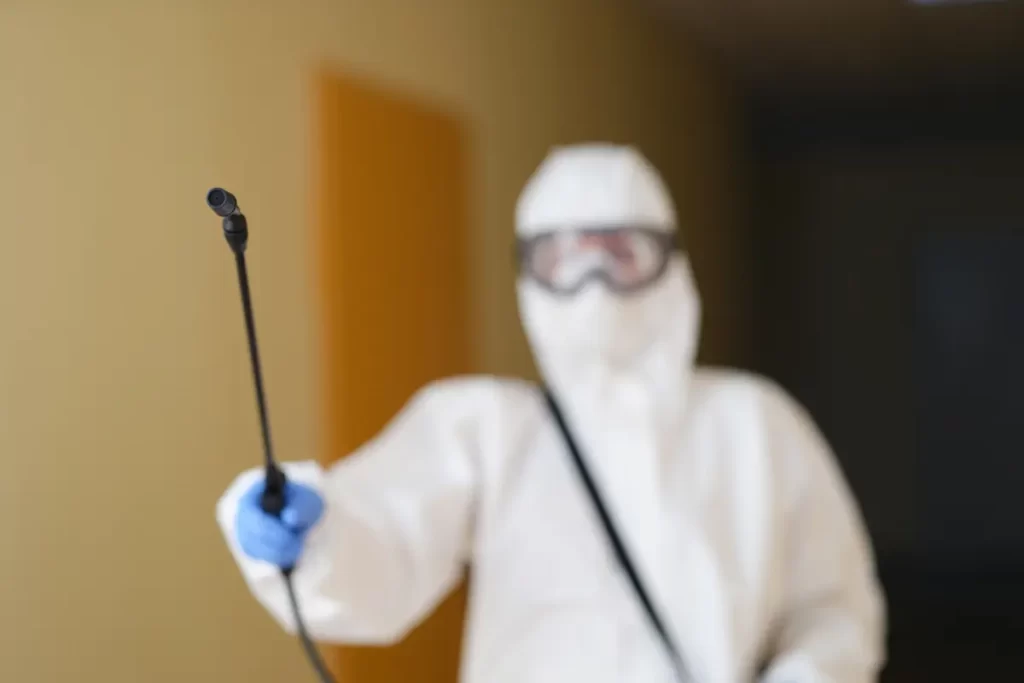
When we use wasp spray, it’s like using a solid tool from our toolbox. These sprays can help us, but we must use them correctly. It’s not just about spraying; we must be careful and know what we’re doing. Let’s talk about how to use these sprays safely and wisely.
Reading and Following Label Instructions
The label on a wasp spray isn’t just a simple sticker; it’s like a guidebook telling us how to use what’s inside the bottle. These directions come from a lot of hard work and research.
- Listening to the Experts: The people who made the spray spent much time figuring out how it worked best. Following the label ensures we’re using the spray effectively and safely.
- Every Spray is Different: Each wasp spray is unique. It’s made of different stuff. So, it’s important to follow the directions on the label of your specific spray.
- Watch Out for Warnings: The label will tell you where not to use the spray. Paying attention to this can stop us from accidentally ruining or staining things around us.
Avoiding Inhalation and Skin Contact
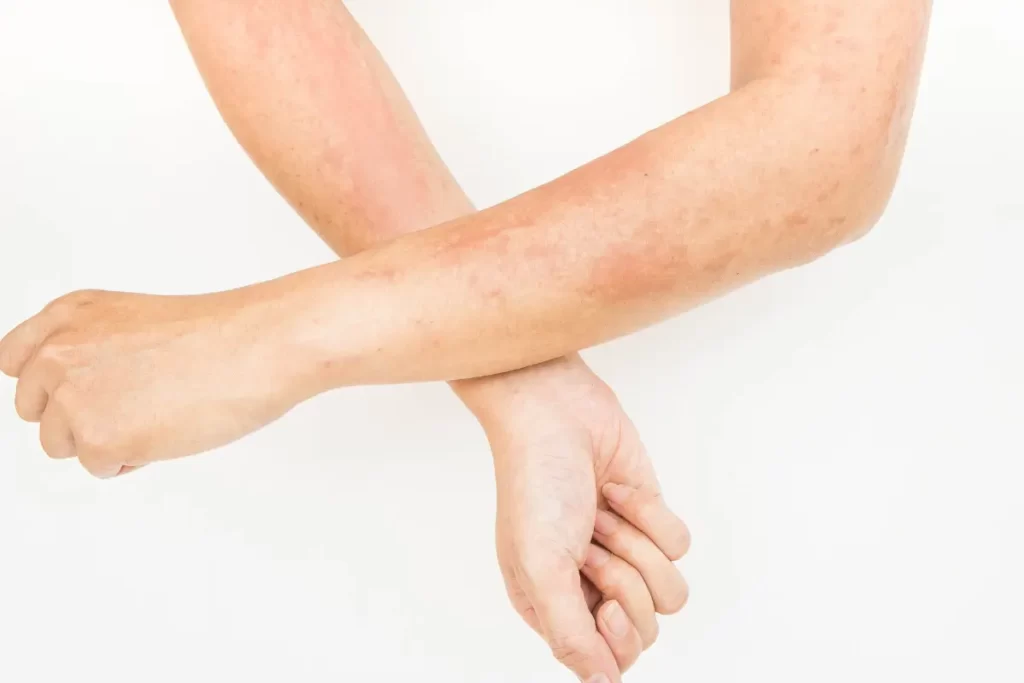
Using wasp spray might seem simple, but we need to be careful. The mist can bother our skin and lungs if we’re not careful.
- Breathing Easy: Wearing a mask or making sure the wind blows the spray away from us can help prevent us from breathing it in. Our lungs are important and need clean air.
- Protecting Your Skin: Wearing gloves keeps our hands safe from the spray. Also, having long sleeves and ensuring our clothes are tight around the wrists and neck can stop the spray from touching our skin and causing irritation.
Proper Storage
After using wasp spray, where you put it is really important.
- Stay Cool and Dry: Store wasp sprays in a cool, dry place to keep them working well.
- Keep Away from Kids: Kids are curious and might think the spray can is a toy. Always store it where they can’t get to it.
- Be Careful What’s Nearby: Make sure to keep the spray away from things it shouldn’t be near, like food or drinks. This way, you keep everything safe.
What to Do If Exposed To Wasps Spray?
Using wasp sprays shows how smart humans can deal with nature, but sometimes mistakes happen. These sprays help protect us from wasps, but if used wrong, they can cause problems. If someone gets exposed, it’s important to know what to do and how to care for them.
Immediate First Aid
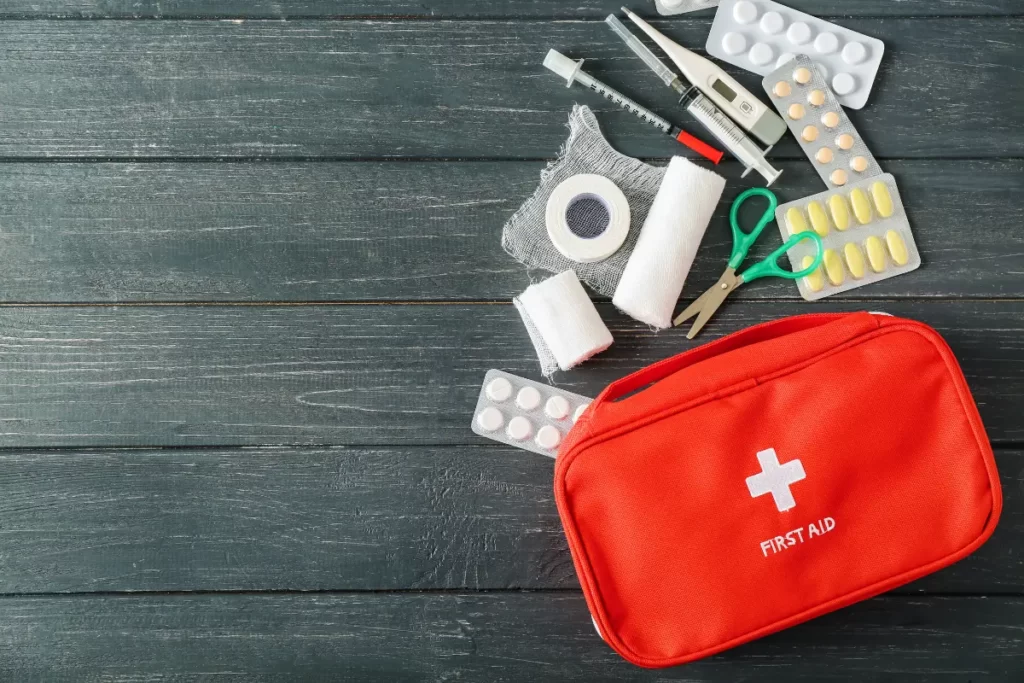
If you accidentally get wasp spray on you, it’s essential to act quickly and know what to do:
- For Your Eyes: If the spray gets into your eyes, wash them immediately with cold, clean water. Keep your eyelids open to make sure all the spray is washed out. This helps get rid of the chemicals and brings comfort.
- For Breathing: Fresh air is key if you breathe in the spray. Go outside or stand by an open window and take deep breaths. This helps clear out any spray from your lungs.
- For Your Skin: If the spray lands on your skin, wash it off with soap and cold water as soon as possible. This stops the chemical from soaking in and avoids skin irritation.
Seeking Medical Attention

Even after giving first aid, sometimes wasp spray exposure needs more attention from medical experts.
- Watch for Signs: After coming into contact with the spray, you might feel itching, burning, dizziness, or have trouble breathing. It’s essential to notice these signs, as they might mean you need to see a doctor.
- Know the Spray Details: It’s helpful to keep the wasp spray can with you or write down its ingredients. This information can help doctors figure out the best way to treat any reactions you might have.
- Talk to Professionals: Even if you think you’re okay after using the spray, it’s always a good idea to check with a doctor or call a poison control centre. They know to catch any small issues and ensure you’re on the path to feeling better.
Using wasp sprays is a balance between keeping us safe from wasps and making sure the spray doesn’t harm us. We can use these products safely and effectively by staying informed and careful.
Alternative Solutions to Chemical Wasp Sprays
Wasps are a part of our environment, and while they can be interesting, they can also make us want to keep our distance. Many of us have used chemical sprays to do this, but natural ways exist to deter wasps without harming them or our environment.
Natural Repellents
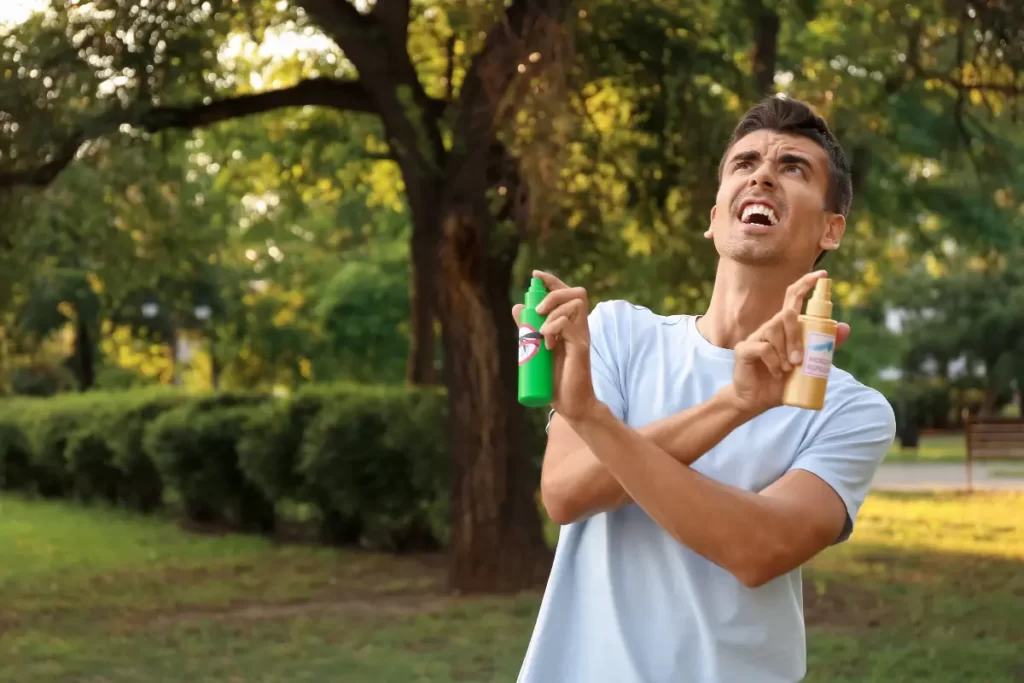
| Aspect | Description |
| Essential Oils | Peppermint Oil A top favourite among natural repellents. Wasps dislike the intense scent of peppermint. Dilute a few drops in water and spray around wasp-prone areas. |
| Lemon and Clove The combination of lemon and clove can deter wasps. Simply cut a lemon in half, insert whole cloves into the flesh, and place it where wasps frequently visit. | |
| Plants | Mint Not only is it great for your garden, but mint’s strong aroma repels wasps. Plant mint in pots around your patio or garden. |
| Basil Its unique scent is unappealing to wasps. Grow basil in areas where you’d like to keep these pests away. | |
| Deterrent Sprays | Soapy Water A mixture of soap and water can be sprayed directly on wasps. The soapy solution covers their bodies, incapacitating them. Use biodegradable soap for an eco-friendly option. |
| Vinegar Spray Mix equal parts of water and white vinegar in a spray bottle. Spritz in areas where wasps hover. The strong aroma discourages them. | |
| Spices | Chili Pepper Either in powder form or as a spray (chili powder mixed with water), the intense heat sensation is a deterrent for wasps. However, handle it with care and avoid spraying near kids and pets. |
Physical Barriers
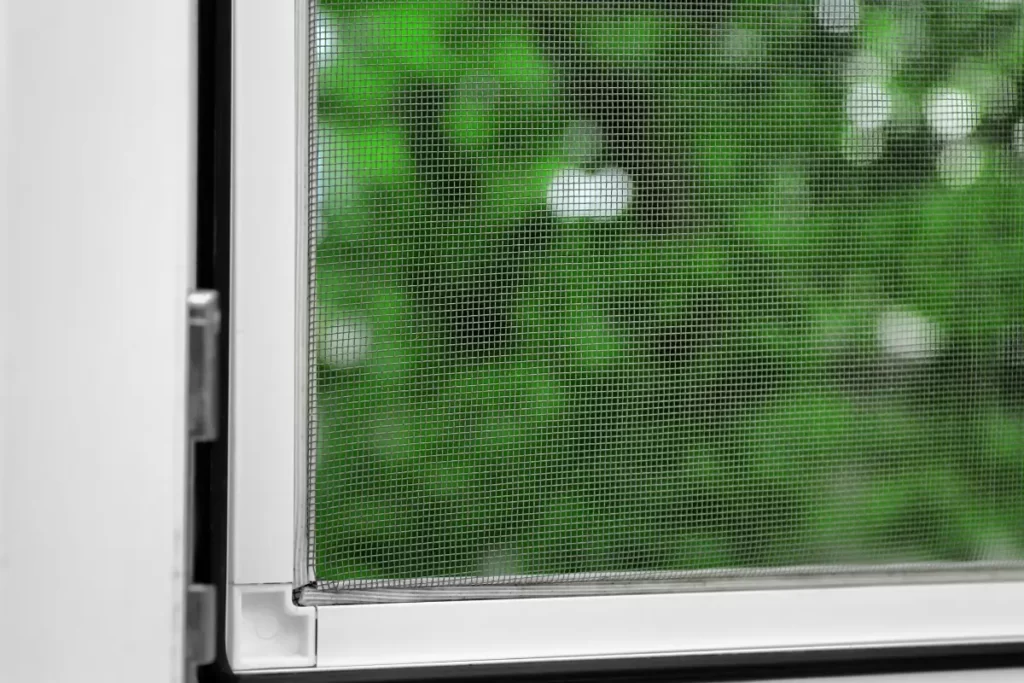
| Aspect | Description |
| Mesh Screens | Windows and Doors Installing fine mesh screens over windows and doors can physically prevent wasps from entering homes, especially during warmer months. |
| Vents and Chimneys Wasps can find their way into houses through vents and chimneys. Ensuring they are properly screened can keep them at bay. | |
| Traps | Glass Wasp Traps These aesthetically pleasing traps use sweet liquids as bait. Once wasps enter, they find it hard to escape. Place them around your outdoor space. |
| DIY Soda Bottle Trap Cut the top off a plastic soda bottle, invert it, and fill the bottom with sugary liquid. Wasps get trapped after they enter seeking the sweet bait. | |
| Decoys | Fake Wasp Nests Wasps are territorial. Hanging a fake wasp nest can deter other wasps from building a real one nearby. Available in stores or can be DIYed with brown paper bags. |
| Location Tactics | Limit Attractions Wasps are attracted to sweet foods. Ensure outdoor gatherings have food covered and trash cans sealed. |
| Regular Checks Periodically inspect your property for signs of wasp nests. Early detection can make removal easier and less risky |
We don’t need to rely on chemicals to live peacefully with wasps. We can share our space without conflict with natural repellents and simple barriers. Both nature and humans have tools to help maintain balance.
Conclusion
Wasps play an important role in nature, showing us how everything in the world is connected. In the past, we used chemicals to keep them away because we wanted to stay safe. But doing that disrupted the balance of nature.
As we’ve learned more about natural ways to keep wasps at bay, we see that we can live peacefully with them. Nature provides us with things like herbs and oils that repel wasps, and we can also use screens and bowls of water to keep them away.
